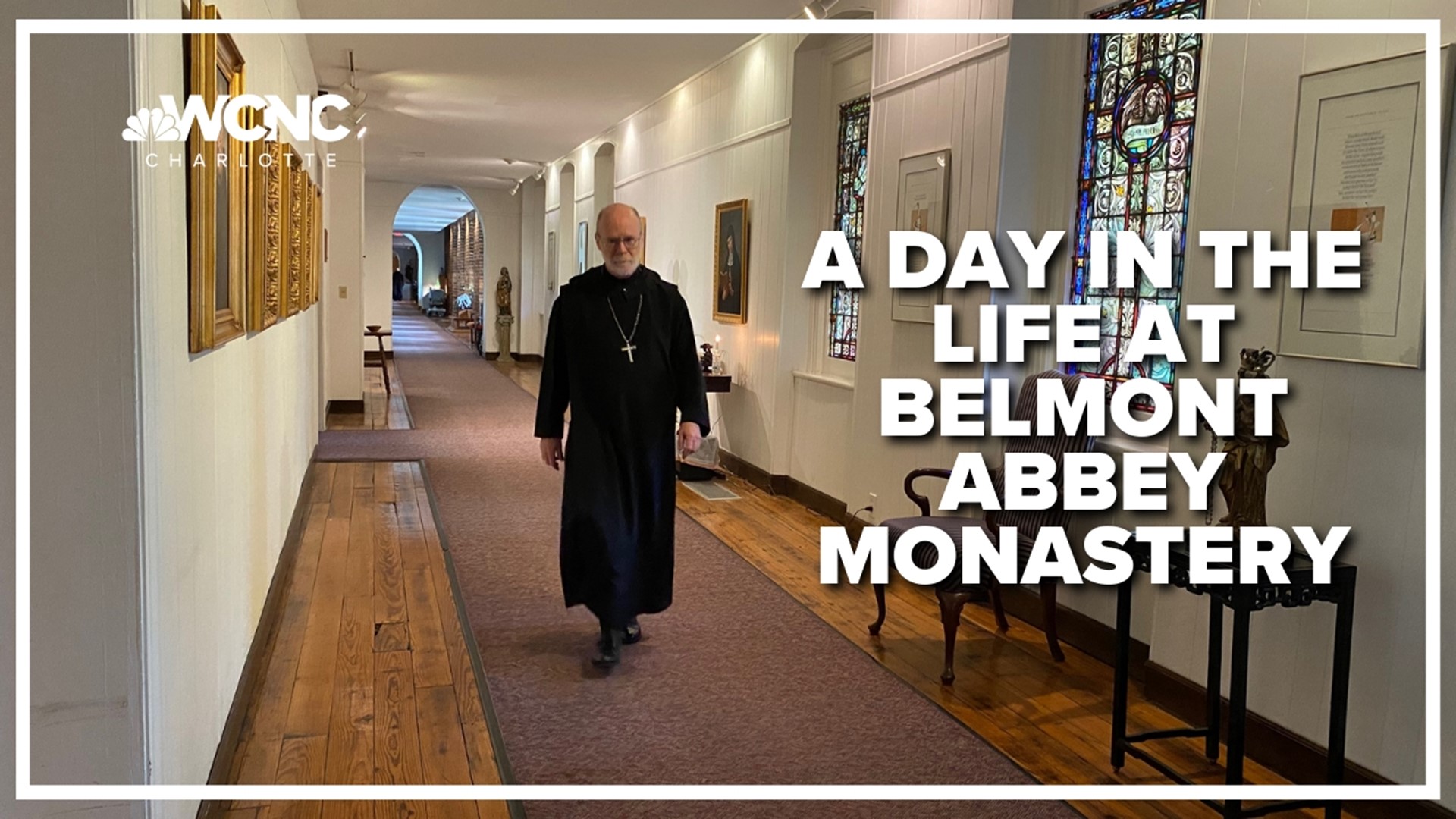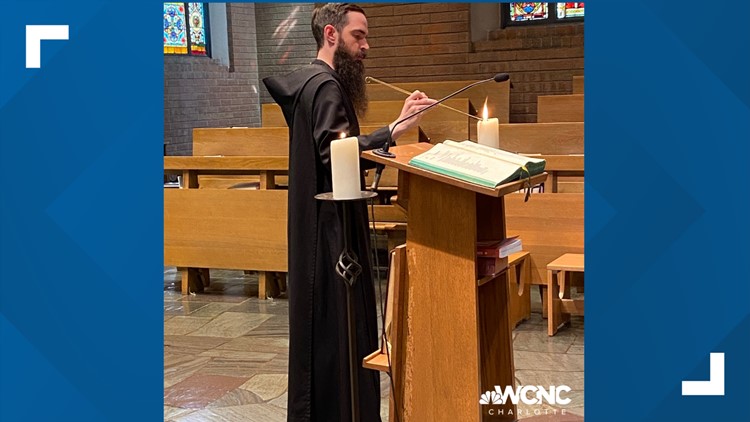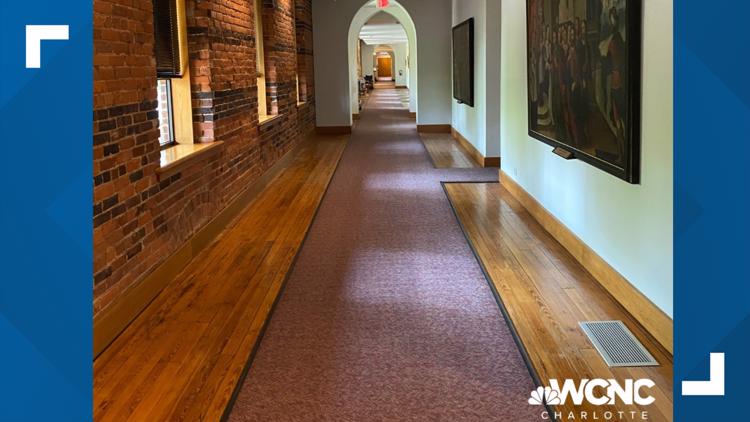BELMONT, N.C. — A small community of brothers founded Belmont Abbey College and Belmont Abbey Monastery in Gaston County in 1876. The campus, marked by its gothic architecture, is located about 20 minutes from Charlotte.
The brotherhood follows the Rule of St. Benedict, who wrote in the sixth century, to pray several times a day.
Brother Leo, one of the monks at Belmont Abbey Monastery, told WCNC's Jane Monreal, "It's difficult to explain what the experiences of monastic life is day-to-day without experiencing for yourself. We live a life that's very repetitive on the surface."
Born in Winston-Salem, Brother Leo explained that his call to the monastery was always something he knew he would look into.
"When I was 18 or 19 I started to pray on my own pretty frequently and it became center of my life," the Belmont Abbey College graduate said. "This life has always been very much at the forefront of my thoughts and my desires, since I was about 19. So even throughout college and all of my professional endeavors after college, which are pretty limited, I was pretty much on my own working after college for four or five years before I entered the monastery."
After working as a professional proofreader for two years in the Washington D.C. area, the English major was 27 years old when he entered the monastery in 2018.
Abbot Placid, a Benedictine monk who committed to the Belmont Abbey Monastery 49 years years ago, said a variety of people are drawn to the monastery.
Benedictine monks offer an inside look at a day in the life at Belmont Abbey Monastery.
"It would be like, Who's attracted to poetry? Or, who is attracted to art? In other words, literature, music, or an expression of that seeking of what's true, what's good," Abbot Placid said. "There's some thing bigger than us that's intangible, a beauty, or a goodness that art and poetry, and any of the arts draw us out of sort of a material world, to something beyond that. So that's what people come to the monastery seek."
The abbot continued, "The goal of monastic life is, according to St. Benedict, does a man truly seek God? If you're truly seeking God, if you're seeking what's true, and seeing what's beautiful, you're seeing what's lovely, which is good, which is peaceful, and so monasteries tend to become the places of beauty."
For Brother Leo, he said living as a monk has really just been a continuation of what he was already living beforehand.
"Even before I thought about being a monk, I was very drawn to prayer, to the church, to being around the church, to be around people and friends who were similarly of faith and prayer," he said. "What I really expected and wanted, was to turn to a life of quiet and prayer and simplicity, which this life very much is and that's the most important thing. As long as that's there, then the other expectations I might have tend to fade into the background or put into the proper perspective. As much as the essential things are always here, which is community, the life of prayer, discipline of becoming a monk."
Now in temporary vows, a roughly 4 1/2 yearlong process, Brother Leo said the strict structure of the monastic life is meant to facilitate an intentional interior union with God in prayer.
This summer, he explained he will be eligible to take solemn vows, akin to marriage vows, in commitment. He said it's a big decision so he's taking it one day at a time.
"I am at peace with any outcome basically. There could be a bit of pressure at some point in the journey, like, Oh I have to do this. This is my sacred duty. If I don't do it, it's all gonna fall apart," Brother Leo said. "So I've had those moments in the past. But now I'm very much at peace with any outcome. So I feel very free to ask to continue or walk away if that's what I feel like God is asking me to do."
Jane Monreal: Contact Jane Monreal at jmonreal@wcnc.com and follow her on Facebook, Twitter and Instagram.













